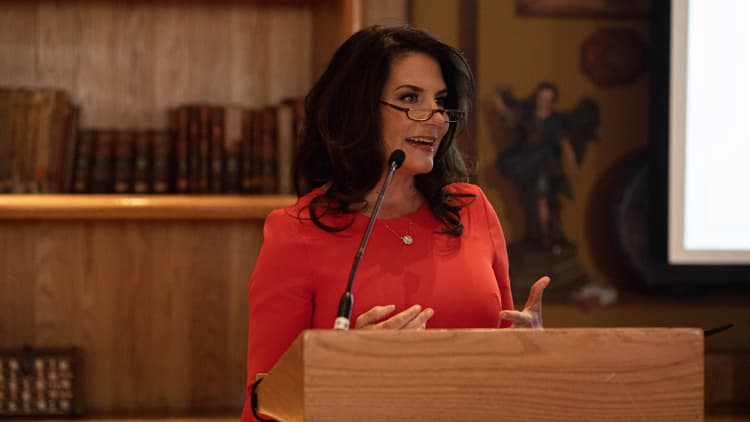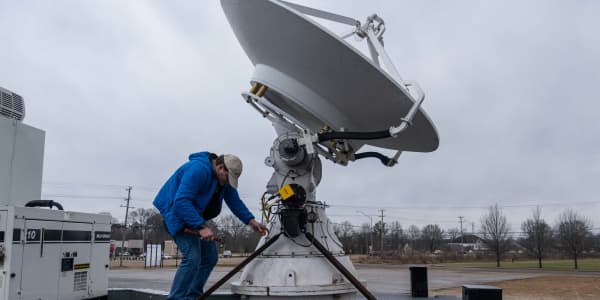More than 9.5 million Americans were unemployed and looking for work in June, according to the latest Bureau of Labor Statistics data. At the same time, job openings in this country hit 9.2 million, a new record high. Statistically, there is an open job for every person looking for one. But even as employers signal that they are ready and willing to hire, they are having trouble finding workers ready and able to fill the jobs.
In its most recent Beige Book report, the Federal Reserve said labor demand was broad-based, but nine out of its 12 districts reported only slight or modest job gains over the past six weeks. "Labor shortages were often cited as a reason firms could not staff at desired levels," according to the report, which is an anecdotal survey of businesses around the country.
Some employers suggested job seekers don't want to work because they are making too much money on extended unemployment benefits, many of which are expiring. Economists are split on whether this is the driving reason businesses can't find enough workers, and by one estimate only four in ten workers actually make more in jobless benefits than from a paycheck.
There are other factors at work, including continuing health concerns around Covid-19 and the lack of affordable child care.
Yet another factor is the acceleration of the mismatch between the skills workers have and those that employers want.
An alarming jobs skills gap made worse
Even before the pandemic forced businesses and workers to adapt to a (partially) remote economy, automation and globalization were changing the way we work, and employers were sounding the alarm that jobseekers with key skills were in noticeably short supply.
Those changes sped up over the past year as employers embraced new ways to continue serving their customers with fewer workers, with existing jobs relying even more heavily on workers with strong technical and digital skills.
What was expected to happen over the next 10 to 20 years has, instead, happened in just a few months and there is evidence that the need for upskilling is stronger than ever.
For example, in Minneapolis, employers told the Fed "the need for more training or education were moderate or significant challenges," while nonprofits working with diverse youth shared that the narrow range of workforce development options was a major challenge for their clients.
Atlanta businesses reported shortages of nurses, drivers, IT and skilled trades workers. In Dallas, staffing firms noted having many more positions to fill than qualified candidates to match.
It's clear, in addition to quickening the pace of adaptation, the pandemic created a new urgency around issues such as closing the skills gap, the role of post-secondary education in developing the workforce, and equity and access to opportunities in education and work. Creating viable solutions to these challenges is not simply good for jobseekers, they're good for business.
New employment solutions
Over the past year, we've seen some promising examples of innovative training, upskilling, and education programs coming from employers, educators, nonprofits, and civic leaders.
Virginia's Newport News Shipbuilding is one of the employers benefiting from the new Community College Workforce Cooperative. The workforce development initiative brings together three community colleges in the Hampton Roads region and focused on training welders and manufacturers and is creating a pipeline of highly-skill talent to the state's largest industrial employer.
In Tennessee, Memphis-based railroad equipment maker Atlantic Track worked with the local high school district to solve its labor shortage attributed to older workers retiring the company could find skilled workers. The Shelby County School District created its first federally registered apprenticeship — an earn and learn model of training. Students get 144 hours of classroom training and 2,000 hours of hands-on training. They're paid while on their way to tradesman status.
The cost of education and upskilling is a barrier for many low-income jobseekers, at times limiting their options in the workforce. Out of the box thinking at Paul Quinn College in Dallas, Texas, is making higher education more affordable and more accessible and helping to level the playing field. The Urban Scholars Program is three years, full-time, and fully online. Much of the tuition is covered through Pell Grants, local employer grants and work-study programs.
There's more. Many employers have recognized that a four-year degree shouldn't necessarily be a requirement for a good-paying job and are starting to implement a skills-focused hiring process. Organizations and companies like Goodwill, Google and Amazon, to name a few, are offering free digital skills training to anyone who wants it. With more emphasis on remote learning and remote working, efforts are underway around the country — in both urban and rural areas — to make broadband access available to all.
The genie is out of the bottle. Companies are not going to go back to the old ways of doing business. Today's jobs, and the jobs of the future, require strong, sometimes new skills. Many key stakeholders are doing their part, coming together to eliminate barriers to upskilling and helping jobseekers along the path to a good-paying job and career. These are encouraging developments, but there is so much more than needs to be done, and done quickly, to ensure our workforce is ready for the jobs employers need to get done.
—By Art Bilger, founder and CEO of WorkingNation, a nonprofit that focuses on solutions to the jobs skills gap








